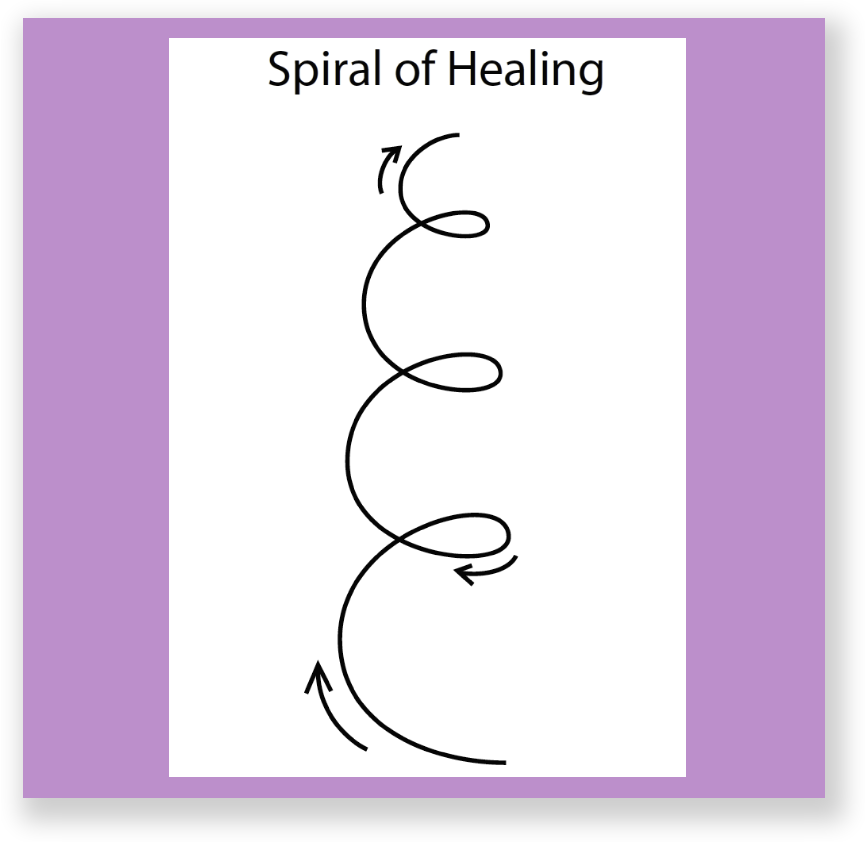Words of Wisdom
In this section, I would like to share some of the thoughts that form the foundation for my philosophy of living. I have accumulated these thoughts and processed the feelings that have been influenced by them through many years of experiencing the glories and sad moments of life. I would also like to add a list of some of my favorite books–books that have made a strong impression on me and have found a special place in my heart. I hope that some of the words in this section will resonate with you, as well.

At any given time in our lives, we are doing the best that we can in that moment, with the skills and experience that we have. If we could have done it better, we would have. Spending time on “should haves”, “would haves” and “could haves” is a waste of precious energy. Use that energy to congratulate yourself for getting through life and learn from these experiences rather than judging them.
When you’re observing your eating experiences, always come from a place of curiosity, not judgment. In fact, this applies to your reflections on most of your life experiences. Related to this concept is a model I drew up one day that I call The Spiral of Healing. The momentum of your healing process is always upward and onward. The little loops along the way that circle the spiral are opportunities for learning. You will loss that chance to grow from your experiences, if you see them as failures or set-backs. Instead, approach them as small gifts along the way. This is the spiral:

We don’t do anything for “no good reason”. Rather than judging our actions, even if they appear to be negative or destructive, remember that there is always a pay-off to what we do. Whatever we’ve done is probably a coping mechanism when we’ve known no better way to cope. We just have to ask ourselves whether the pay-off we get from maintaining this coping mechanism is still working or is still worth the benefit. We also must see if we can find or have the capacity for utilizing a more productive coping mechanism at this point in our lives. You can create a pro/con list to evaluate the benefits and costs of each action.
Every time we make a decision, we must realize that there is a resultant trade-off. If we choose option A, we will be losing out on option B, and vice-versa, whether the option involves a movie choice or a life partner choice. In order to make the decision, we must accept the reality that we can’t have both choices in any particular moment in time.

After making a choice in life, we need to allow ourselves to accept the sadness that comes with the loss of the option we do not choose.
There is a secret place in each person’s heart that holds the memories of those no longer with us, whether as a result of death or separation. That secret place also stores images of special, past moments in your life’s journey. These memories never go away but stay dormant until a passing image or thought or piece of music or even a random scent calls them out of storage, and they burst into consciousness without notice.
Appreciate the value of contrast. The natural way that the world works presents contrast between night and day, summer and winter, the tide movements in and out. If all we did was to vacation, it would become boring and mundane. But a vacation that follows a number of weeks of hard work will be deeply appreciated.
Appreciate contrast, but do not view the world in only black and white. There are many colors hidden in the shades of gray between black and white. Nothing is either good or bad, right or wrong.

Place your experiences into perspective. Be aware of finding the balance between diminishing your feelings about what you’re going through or making a catastrophe of it.
Look for the nuances of your life experiences. There are golden gifts hidden within difficult times. Not everything is evident on first examination–allow yourself to be patient in order for these gifts to emerge.
“This too shall pass.” This phrase was inscribed on a lighter that was given to my mother by an old boyfriend. (Fortunately, lighters are no longer seen as appropriate gifts!) Whenever I am in deep despair or even feeling overwhelmed or frustrated, I remember this thought. No matter how bad things feel, the feelings tend to shift and eventually fade over time.
Life presents a series of challenges interspersed by moments of joy and peace. Appreciate the joy and enjoy the peace when it comes; this gives you a respite, so that you can find the strength to deal with the next challenge.

Looking for the moment when you notice that you’re comfortably full and satisfied while eating can present you with a conflict. Although the food may still taste delicious (although not really as delicious as it did when you were moderately hungry), you realize that it is time to stop eating, and that can be a sad and disappointing moment! As you practice tolerating this feeling of sadness and loss, it will make it easier to tolerate the bigger losses in life. See this as an opportunity for developing your emotional muscle.
Whenever you’re approaching a major life change, learning a new skill, or even coping with everyday demands, make it easier by committing to taking tiny baby steps. You will feel much less out of control this way. I remember that when I was seven years old, my mother was feeling very overwhelmed with her life. I said to her–“Mommy, just do one little thing. When you finish that thing, then do the next”. I revert back to the wisdom I had at seven, whenever I feel very overwhelmed (especially when I look at my messy desk!) and tell myself to simply file one paper or make one phone call, etc. This completely calms me down, and anxiety fades away.

”For the most part.” These are my four favorite words. Whether they have to do with your eating choices, having movement in your life on a regular basis, being social and active, etc., they represent the concept of not trying to do whatever you do perfectly. It’s about having a commitment to self-care that is consistent, but not absolute. If you adopt this philosophy, life will be much less stressful!
Above all, avoid striving for perfection. The artist, Salvador Dali, has been quoted as saying, “Have no fear of perfection — you’ll never reach it.” Why make yourself miserable by thinking you’re not doing something perfectly or being someone who is perfect in some way? Just do your best, and that will always be good enough!
Challenge yourself to stay present in your daily activities (for the most part!). Staying present will give you the opportunity to appreciate each moment.
Putting your focus on self-compassion and gratitude will have a powerful effect on your healing process. Be as kind to yourself as you are to others. Each day–spend some time on feeling grateful for the gifts you have. It will lift your spirits and make life’s journey more meaningful!

